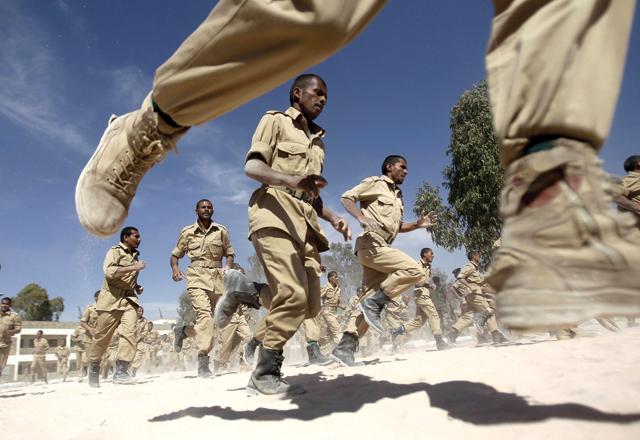SANAA — Shiite rebels and several tribes of the influential Hashid confederation in northern Yemen agreed Tuesday to end fighting that has killed nearly 150 people in a week, both sides said.
But the deal does not include Al Ahmar, the Hashid’s historical leading clan, whose stronghold was overrun at the weekend and whose fighters have fled to the capital.
The Ansarullah [Partisans of God] rebels, also known as Houthis, have been pushing out from the mountains of the far north to areas closer to Sanaa to expand their hoped-for autonomous unit in a promised federal Yemen.
They met with fierce resistance at first from pro-government tribes in the Zaidi Shiite northern highlands led by Al Ahmar.
But at the weekend they seized the town of Huth and Khamri village — the seat of Hashid tribal chief Sheikh Sadeq Al Ahmar — in the northern province of Amran.
Abdel Karim Al Khaywani, an Ansarullah spokesman, said “we reached a peace agreement Tuesday with the Bani Suraim, Usaimat and Uzer”, all Hashid tribes in Amran, where fighting erupted on January 5.
The agreement, reached without Al Ahmar, stipulates an “end to fighting... reopening of roads and allowing supporters of Ansarullah to move freely” in areas under tribal control, he told AFP.
Sources say divisions within the Hashid confederation could have contributed to the defeat of Al Ahmar because many tribes have sided with the rebels.
The divisions are the result of a rift between Hashid chief Sheikh Sadeq and ousted president Ali Abdullah Saleh, who also belongs to the confederation and can still count on the loyalty of some of its tribes.
Al Ahmar sided with the Arab Spring protests that forced Saleh to step down in February 2012 after 33 years in power.
A tribal source confirmed the agreement and said “Al Ahmar dignitaries have evacuated their strongholds in Amran”.
The deal with the rebels marks “a revolt by the Hashid against Al Ahmar and their 50-year-long injustice,” he said, adding that the agreement was overseen by Ali Hamid Jelidan of the Bani Suraim, who is known for his close ties to Saleh.
The ex-president has seemed reluctant to retire from political life and is accused by opponents of impeding the UN-backed transition in Yemen.
The Houthis, who take their name from their leading family, rose up against Saleh’s government in 2004 and have fought an on-off conflict in the far north ever since.
President Abed Rabbo Mansour Hadi has pledged that Yemen will adopt a federal constitution in a bid to address regional grievances that have fuelled violence across the Arab world’s poorest country.
But at a ceremony last month to mark the conclusion of a troubled 10-month national dialogue, he put off any decision on the thorny issue of how many component units the federation will have, promising that a special commission will decide.

















